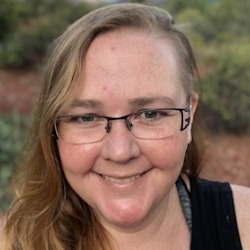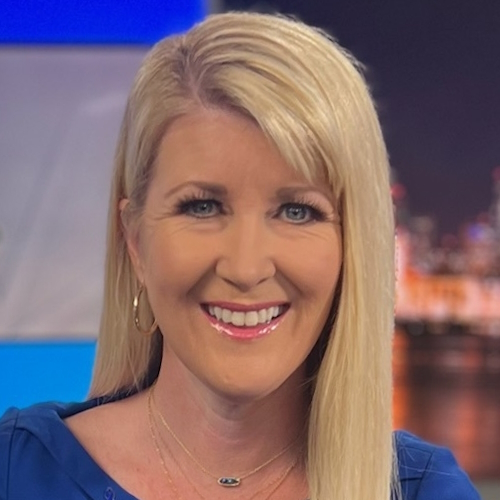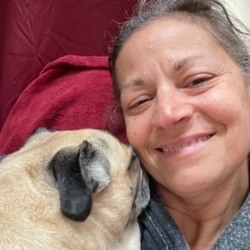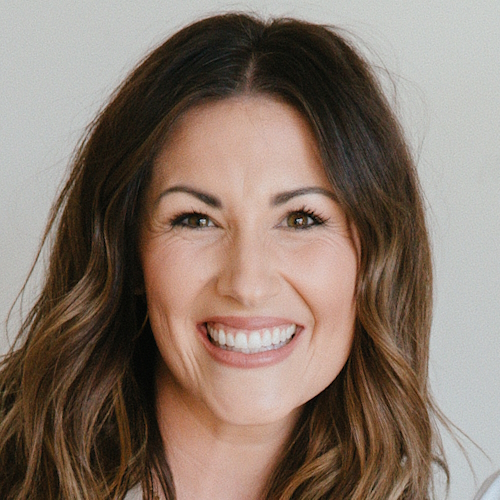Paula’s Stage 3 Colorectal Cancer Story
Interviewed by: Taylor Scheib
Edited by: Katrina Villareal
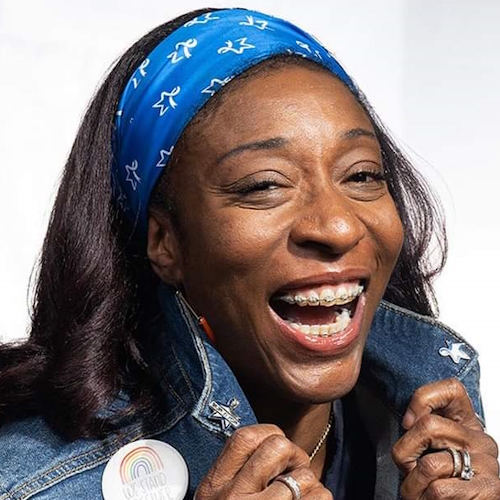
Paula initially experienced painful gas, irregular bowel movements, and eventually blood in her stool. She was often dismissed by doctors who attributed her symptoms to stomach flu, hemorrhoids, or irritable bowel syndrome. As her condition worsened, she became anemic and experienced severe pain, weight loss, and fainting spells.
After years of being misdiagnosed, Paula was finally diagnosed with colorectal cancer in 2014 after a series of urgent care visits and a failed colonoscopy. The tumor had been encapsulated in her colon and despite initial fears, it had not spread to other organs or lymph nodes.
Paula underwent emergency surgery to remove the tumor. Although doctors anticipated the need for chemotherapy or radiation, they were able to successfully remove the tumor and 34 lymph nodes. Paula’s cancer was found to be stage 3, but it had not spread to her lymph nodes.
Throughout her journey, Paula faced multiple challenges, including medical bias due to her race and sexual orientation. She experienced homophobia, racism, and misogyny, which contributed to delays in her diagnosis and treatment. Despite these challenges, she found strength in her community and in sharing her story.
Paula emphasizes the importance of early screening, particularly for those with a family history of colorectal cancer and for marginalized communities. She advocates for self-advocacy in healthcare, urging others to push for fair and humane treatment. Paula believes in the power of survival and thriving with cancer, encouraging others to know their family history, get screened, and not be afraid of a cancer diagnosis. She stresses the importance of treating everyone with dignity and respect in healthcare and encourages individuals to take control of their health.

Thank you to Johnson & Johnson for its support of our patient education program! The Patient Story retains full editorial control over all content.
This interview has been edited for clarity and length. This is not medical advice. Please consult with your healthcare provider for treatment decisions.
- Name: Paula C.
- Diagnosis:
- Colorectal Cancer
- Staging:
- Stage 3
- Symptoms:
- Painful gas
- Irregular bowel movements
- Blood in stool
- Anemia
- Severe pain
- Weight loss
- Fainting spells
- Treatment:
- Surgery: tumor resection
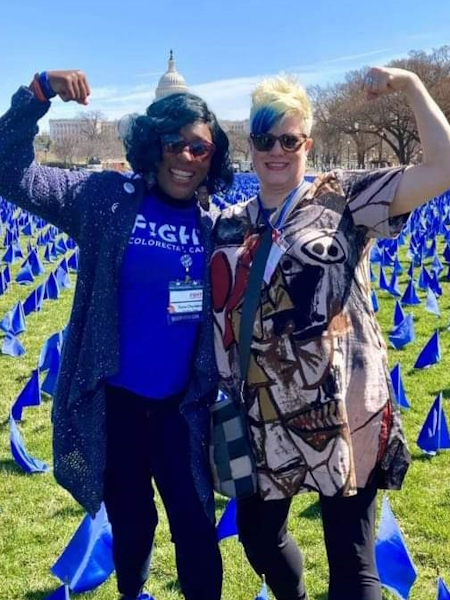
I had all the signs and symptoms that they tell you to look out for when it comes to colorectal cancer, but at the time, I didn’t know what they were.
Introduction
I’m in love with my best friend and partner, Lara. We have been together for 38 years and married for 10 years. I’m a cat mom to a little cat named Trixie.
I enjoy dancing and singing. I’m a Duran Duran fan and that’s how I met my wife. For our 38th anniversary, we went to their 40-year celebration in Birmingham, England.
I’m also a great cook and I have a collection of amazing cookbooks. I’m trying to make my way to some of the best restaurants in the world.
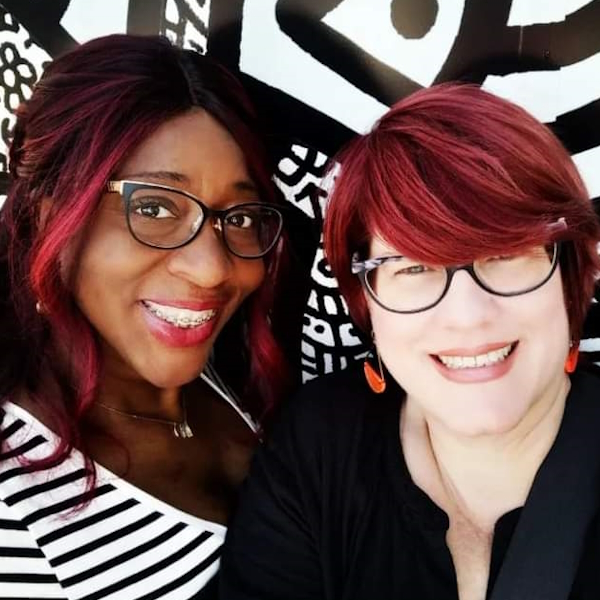
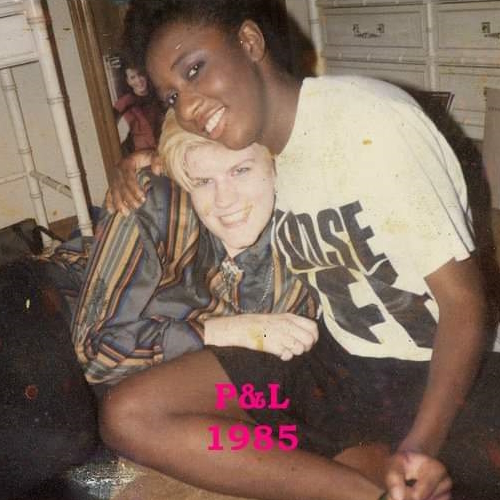
Pre-diagnosis
Initial Symptoms
I had all the signs and symptoms that they tell you to look out for when it comes to colorectal cancer, but at the time, I didn’t know what they were.
In the early days, I always had painful gas and weird poop. When I experienced them, I would automatically blame what I ate and drank, so I would dismiss them a lot of times.
But then I started to have more painful symptoms, especially with the gas. I told my wife that I felt like I had gas going up and it was getting trapped. There were times when it hurt so bad that I wanted to scream.
I started seeing more blood. I went to see a doctor who said I probably had hemorrhoids.
PCP Appointment
I started going to the doctor by the end of 2012. I went to my primary care physician, but he didn’t think much of it at the time. When the pain was bad, I would get told that I probably had stomach flu.
Symptoms Worsen
I started to see signs of blood in late 2013. Sometimes I would be straining to poop. Other times, I would have diarrhea. I didn’t have my regular PCP at the time, so I would see whoever was available and they told me to change my diet. When I told one doctor that I saw some blood, he thought I might have stomach flu, so he gave me antibiotics.
By 2014, I started seeing more blood. I went to see a doctor who said I probably had hemorrhoids, so whenever I saw blood, I assumed it was that. I also started having bad pain and being anemic, but I didn’t know it then. I was cold all the time.
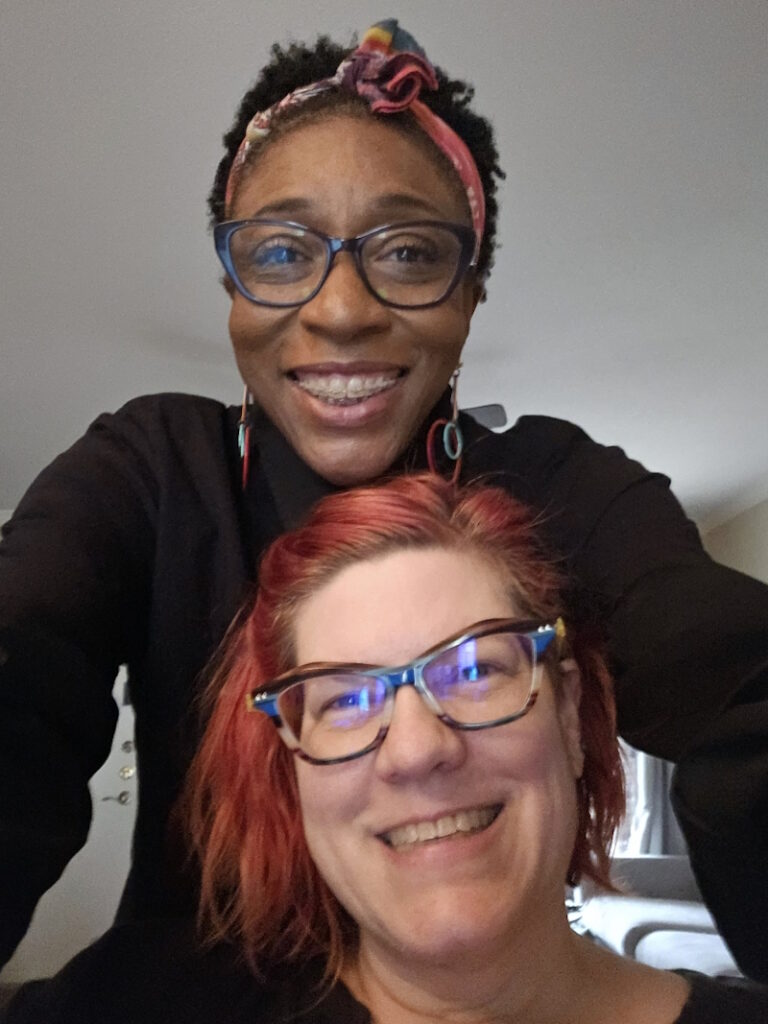
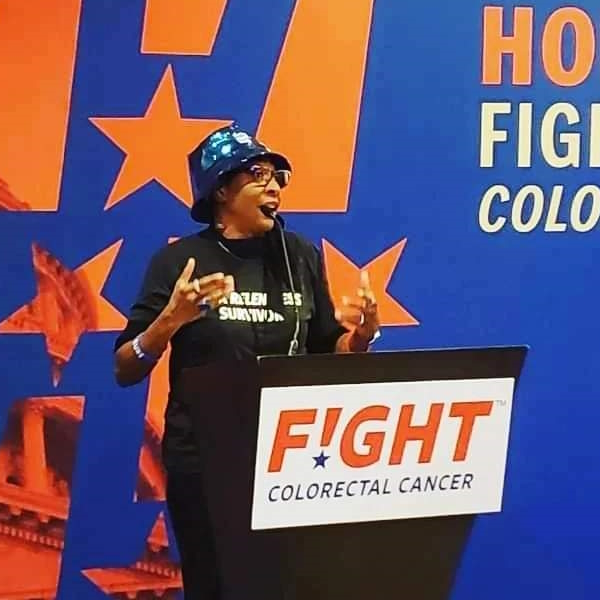
Being Dismissed
They said things that a lot of people under the age of 50 would be told because they were too young. “You probably have IBS.” “It’s probably hemorrhoids.” “You just have gas.” “I’m sure it’s nothing. You’re too young.” I heard a lot of that over the year.
By the time 2014 came around, I had been on antibiotics for nine months from different doctors I had seen since 2013.
There were times when the pain would be worse and I would have to go to urgent care. I went at least six times. The first few times, they would say I had gastritis or something stomach-related and send me home with antibiotics and painkillers. The last few times, I was bent over and freezing because I was anemic. I started to lose weight and ended up losing 45 lbs.
I have experienced a lot of bias and straight-up racism with medical care.
The doctor came into the room and before he even said his name or mine, he said, “I don’t give drugs in this room.” My wife took the doctor out and started yelling at him in the hallway while I sat there, thinking, Don’t yell. They will not help me if you yell.
I have experienced a lot of bias and straight-up racism with medical care. In 2014, I had doctors ask, “Did you tell me you were gay? Listen, it doesn’t matter what’s wrong with you because you’re going to hell.”


Losing Her Job
I got a job that year, but I was having such a hard time because I couldn’t keep up. Then I started to see my hands turn white and thought I was working too hard and planning for our wedding was too much. But the doctors kept telling me that I was okay.
I started getting depressed because I didn’t feel good. I felt that I wasn’t pulling my weight or helping my wife like I should. I was telling people I couldn’t do things, but the doctor said I was okay so it was starting to mess with my head. I didn’t want to tell people when it was bad, so I was hiding it, which made it worse.
I ended up losing my job because I kept calling in sick.
I was so sick and dizzy that I could barely see and stand up.
Diagnosis
Turning Point
The day after we got married, we went to a Broadway play, but while we were there, I felt terrible. My colon was becoming completely blocked and I was starting to have serious complications. By the time the play was over, I was so sick and dizzy that I could barely see and stand up. I was shaking, my body was red, and my skin was hot.
When we got back to my best friend’s house, I ran past the door and barely made it to the bathroom. I had the most humiliating accident. I was lying on his bathroom floor and knew that this was bad. I knew something was wrong.
Around January, I started to have fainting spells. I went to an urgent care on a Thursday and said, “Ma’am, I don’t care what you say. Nothing is coming out of me but blood. Nothing!” The person behind the counter got a nurse, who came out and said, “I’ve seen some of your records. Has anybody given you a FIT test?”
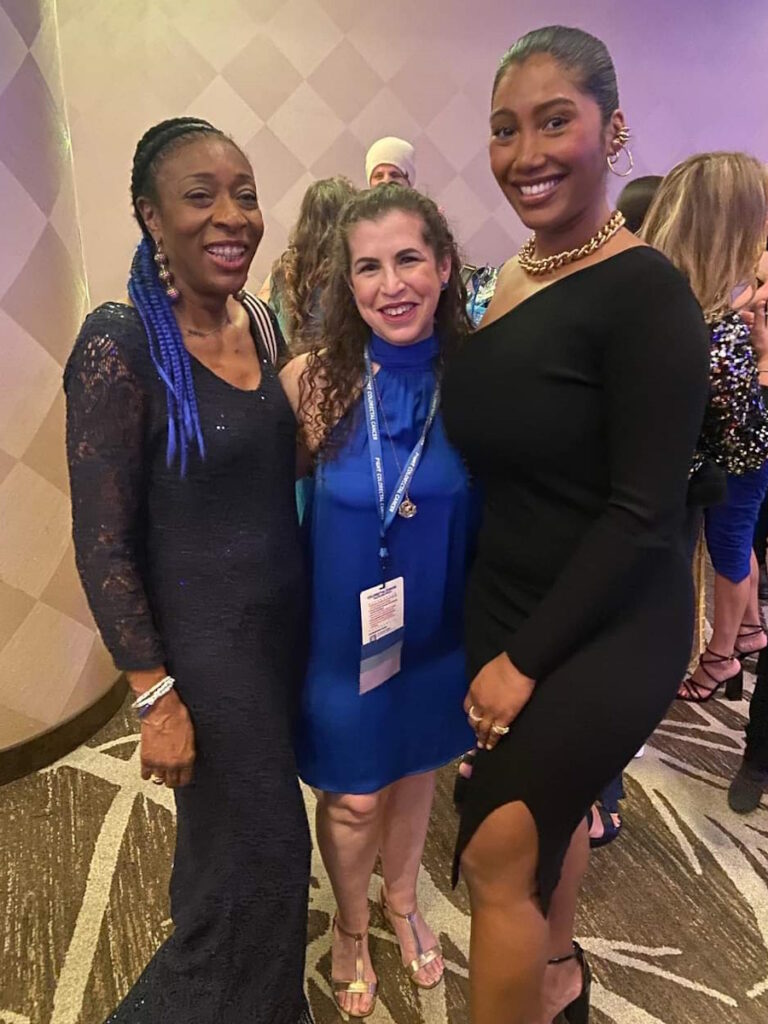
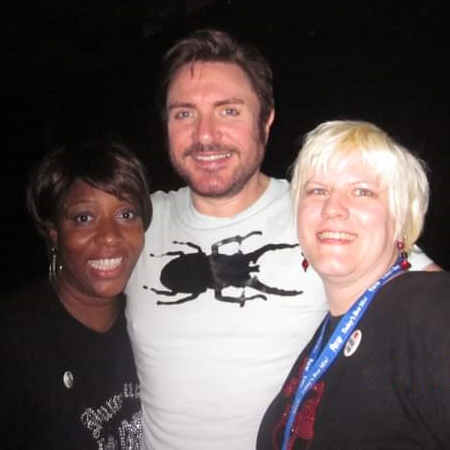
I didn’t know what a FIT test was. She was a bit worried. She said, “You probably ate something red, but I’m going to give you this test. Unfortunately, we don’t have a lab here, so I will not have the results until next week.”
I was in agony and stayed in bed all weekend. I was going back and forth to the bathroom and blacking out. I called my wife and we went back to the ER. This time, I must have looked bad enough because they kept me. I still had a 13-hour wait, but they said, “Get her a room. Get some scans. We’re going to do a colonoscopy.”
I don’t remember much after that. I was so sick that they started to medicate me and put me out. When I woke up the next morning, it was time for rounds and the doctors were going to come and talk to me. They did scans, blood work, EKGs, and all these tests, and they tried to do a colonoscopy.
They tried doing a colonoscopy, but they couldn’t get through.
Getting the Official Diagnosis
Around eight doctors came in. My heart started pounding. One doctor said they tried doing a colonoscopy, but they couldn’t get through. I didn’t know what to say after. It was a devastating way to find out I had colorectal cancer.
Reaction to the Diagnosis
What did that man say to me? What did those people tell me? Why did all those people ignore me? How long does this cancer take to grow? Black people have a higher risk of this? I was pissed and it was messing with me as much as the cancer was messing with me. I was mad and when I’m mad, I keep it in because I don’t want to hurt other people. Doubt, depression, and misery set in, and I needed to find a way to turn it around.
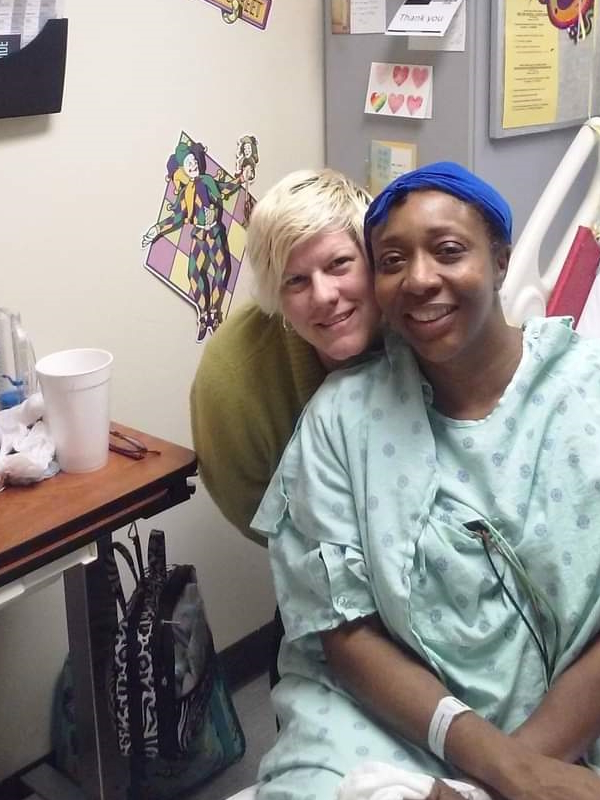
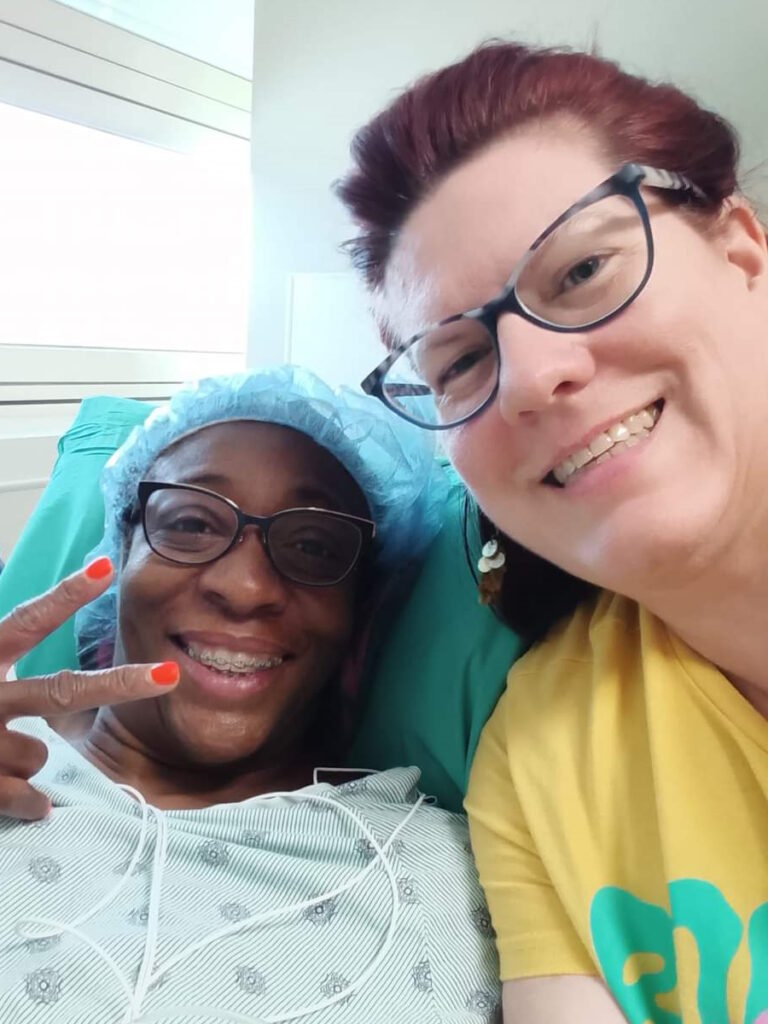
Treatment
Surgery to Remove the Tumor
They said, “We’re going to do emergency surgery. Based on what we see, it looks bad. We believe the tumor has broken outside of the colon wall. It might have some interference with your liver and other organs. We’re not sure what we’re going to find. We’re possibly going to do radiation and chemo because it looks massive. We might have to shrink it first or we might have to go in, do surgery, clean it up, and fix what we can. We need to decide. We’re going to keep you here because you are completely dehydrated.” I was skin and bones, and an absolute mess.
The tumor board said it looked bad, so we weren’t going to do chemotherapy or radiation, but we were going to do surgery. They brought me back to the hospital and prepped me for surgery. I was there for about four days prior and then a week and a half after.
The tumor was encapsulated in the colon and has not broken outside of the colon wall.
I went in early morning to prep and they told us that surgery would take 12 to 14 hours. They said, “We believe you are stage 3. When we go in, we might have to take out your uterus. We will take out whatever the tumor has affected. We will take out part or most of your colon. You will probably have a permanent ostomy. We may have to take out part of your liver. If it has gone deeper into the stomach, we will decide from there. We will do what we must do and that’s all we can tell you right now.”
When I woke up, the nurses came over and said, “Ms. Chambers, your doctor will explain everything.” He came in and said, “When we got in, it wasn’t what we thought.” Lara said the doctors came to her about four hours into surgery. They found that the tumor was encapsulated in the colon and has not broken outside of the colon wall. My body was completely swollen. I was blocked. They took out 34 lymph nodes. The whole surgery took 5 ½ hours. When they got the pathology back, there was no cancer in any of the lymph nodes.
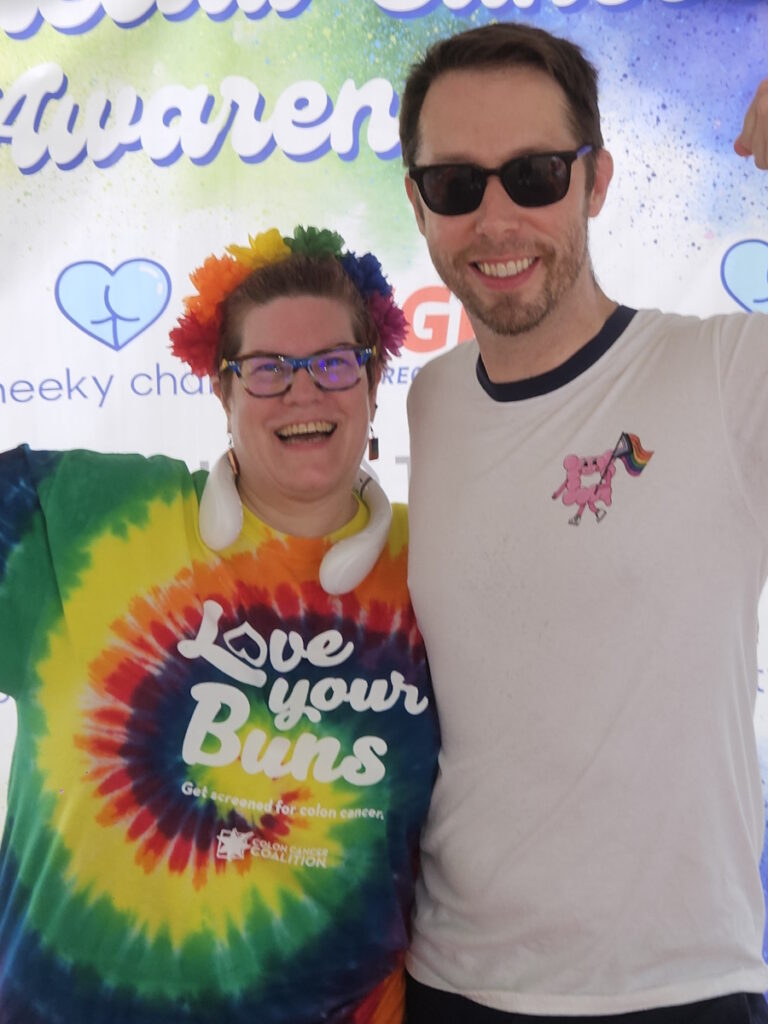

Genetic Testing & Family History
Once my doctors knew that I had colorectal cancer, they did all the right things. They asked all the questions, especially my family history. They asked me repeatedly.
I decided to stay at the county hospital because they saved my life. I found my team, so I continued my care with the oncology and GI staff. In conjunction with UTHealth, they were able to offer genetic testing, which I qualified for and was able to do through my wife’s insurance. They suggested that because they think I have a genetic component. They tested me for Lynch, but it was negative.
That same year, my father-in-law and I did a DNA test and the results said I had another brother. A cousin contacted me and we talked about what was going on and I found out about David. He allowed me to share part of his story. He is an ostomate and was diagnosed with stage 3 colorectal cancer two years before me. He didn’t know about our family because he was adopted when he was a kid. We then found out that there’s a family history of not only colorectal cancer but GI cancers, and it runs deep in the family.
Look at your own biases. Think about when you are at the doctor yourself and how you would like to be treated. Keep it professional but bring in that real spirit of caring.
Experiencing Bias
I experienced homophobia, racial bias, bigotry, and a lot of misogyny, which I think went into some of my diagnoses. A couple of people told me I was hysterical and that it was in my head. It was so freeing to tell my story for the first time. It brought people into my life who had a similar story.
Meeting them and finding that community made me realize that it wasn’t just me and that I wasn’t too young. It wasn’t because I was Black. It wasn’t any one of these things. There’s a way that we look at cancer and at diagnosis, treatment, and preventative medicine that needs to be changed. I had whole conversations about this cancer that has stigmas around it that I did not even know I was supposed to be ashamed of.

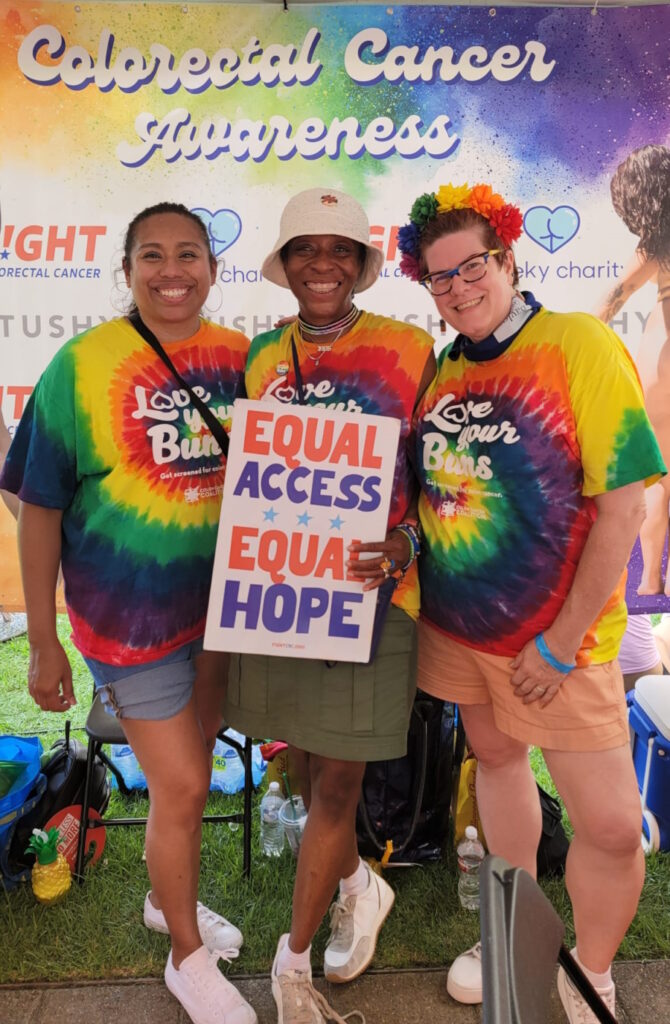
I’m a nine-year survivor and in those nine years, I’ve seen things change. Things take time. It’s like pulling a bandage off a wound and having the wound heal. We have to treat it and give it light. We have to uncover some of the issues with which we are dealing. Because we all have our own biases, it’s important for anybody in the healthcare field, especially here in the United States, to look at things within us that we need to look at.
Innately, I think most people who go into healthcare do it because they want to. It’s their calling. It’s also their decision to be in healthcare, a space where they care for people who show up in their rawest moments. It’s important to have grace and a little bit of humility. If someone’s coming to you, they’re putting their trust in you.
Treat people with respect and dignity. Ask them, “Who are you? What happened to you? How did you get here? How can I help you? How did you get to me? Thank you for coming here.” Listen to them and meet people where they are.
The calling in healthcare is not for everyone. We still have laws, rules, and regulations, and we are to treat everyone with dignity and respect. Look at your own biases. Think about when you are at the doctor yourself and how you would like to be treated. Keep it professional but bring in that real spirit of caring.
I want people to not be afraid to go to the doctor. I don’t want what happened to me to happen to anybody.
People need to get screened, especially those in the Black and LGBTQIA+ community. You need to feel comfortable and know that there are more and more places with affirming care and who show it. They want you to know that you are welcome. Look for the rainbows.
Let us know that we are welcome. Ask me what my pronoun is. Is that my partner or my wife? Do not assume. Ask us what we need and be in partnership with us.
I want people to not be afraid to go to the doctor. I don’t want what happened to me to happen to anybody. Know your family history. A lot of gay kids are kicked out of the house when they are young, but a lot of them stay in touch with their family members.
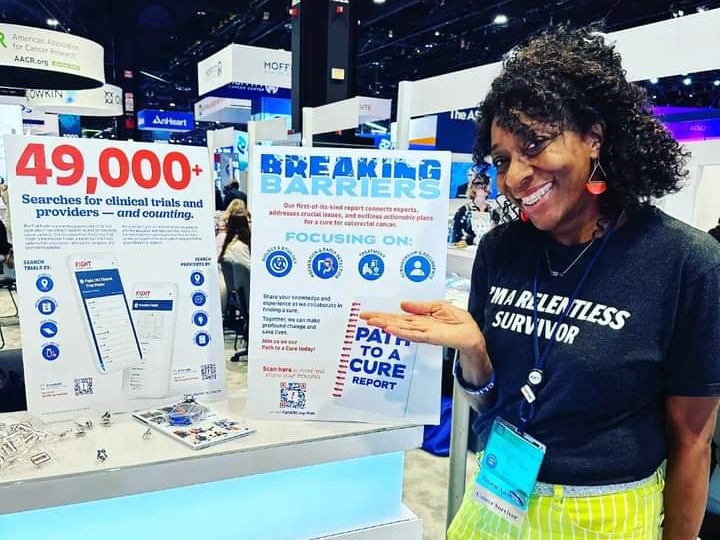
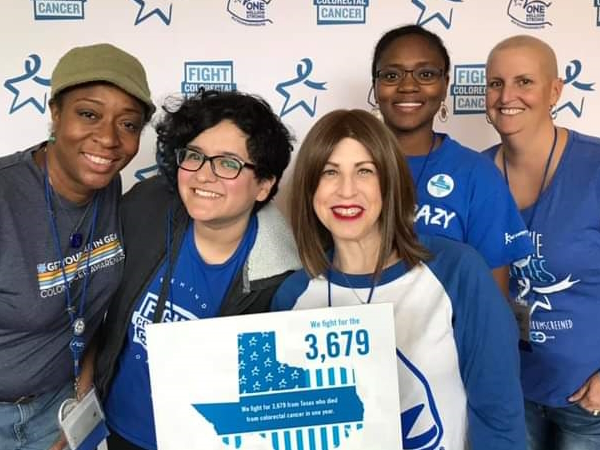
Words of Advice
We need to get screened for colorectal cancer. The screening age now is 45, but if you have a family history of colorectal cancer like me, especially if you have beautiful melanated skin, you want to make sure that you’re talking to your doctors early.
Cancer affects the family and not just the individual. If there’s cancer in the family, it needs to be openly discussed. We need to be tested. We need to know our family history.
Nobody is going to care for you the way you do. Always put yourself first.
Cancer is a scary word, but it’s a word. People survive, thrive, and live with cancer. We’re called survivors from the day that we are diagnosed, so from that day, I had a choice. Am I going to live with this or am I going to let it take me? I needed to find a way to live with it and I did.
But I didn’t want to just live—I wanted to thrive. If cancer’s something that you’re afraid of and it’s the reason you’re not getting screened, you’re doing yourself a disservice.
Advocate for yourself. You have the right to advocate for fair treatment and humane treatment. Nobody is going to care for you the way you do. Always put yourself first. Put the mask on first and take care of yourself first. Nothing can be healthy and whole until you are healthy and whole. If you’re not comfortable, say so.
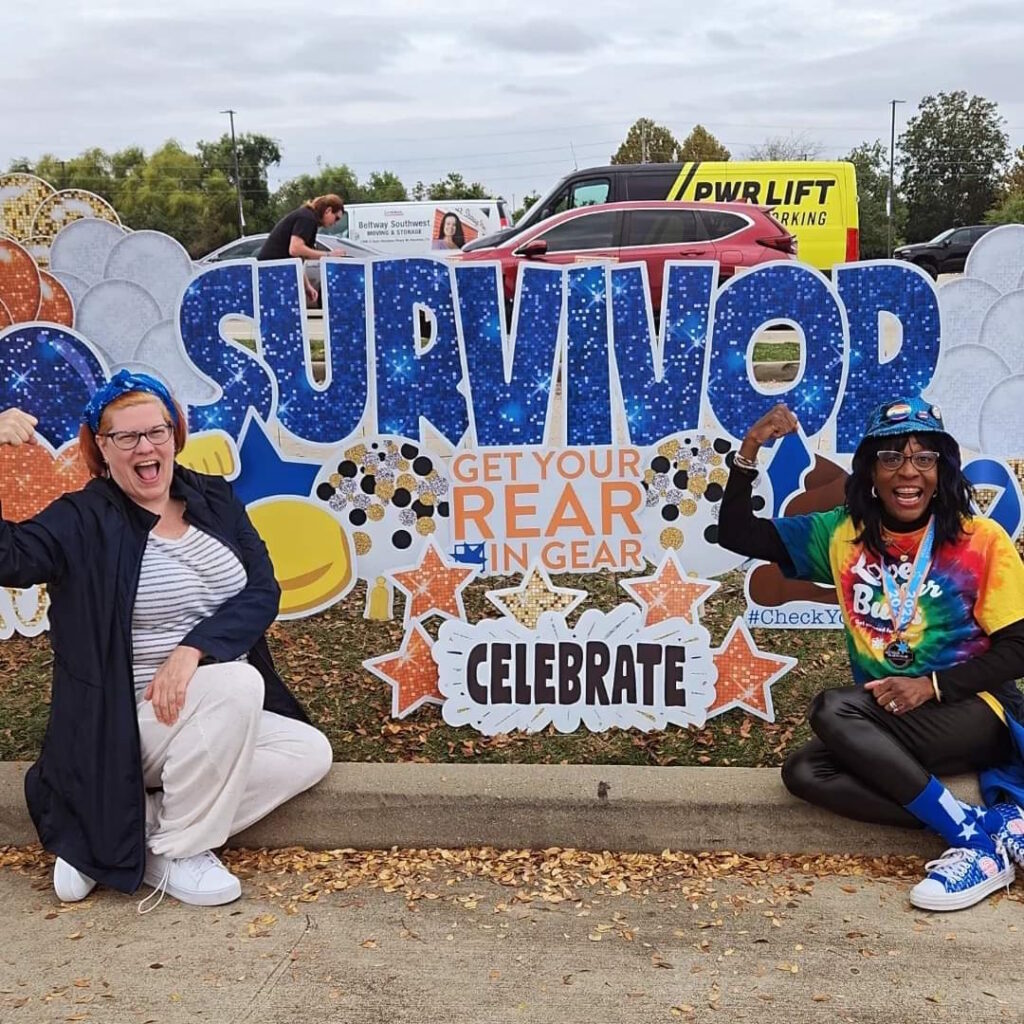

Special thanks again to Johnson & Johnson for its support of our independent patient education content. The Patient Story retains full editorial control.

Inspired by Paula's story?
Share your story, too!
More Colorectal Cancer Stories
Cora V., Colorectal Cancer, Stage 4 (Metastatic)
Symptoms: Fatigue, unintentional weight loss, blood and mucus in stool
Treatments: Chemotherapy, chemoradiation, surgeries (temporary ileostomy and reversal, liver surgeries and ablation)
Monica D., Colorectal Cancer, Stage 1
Symptoms: None; caught at a routine colonoscopy
Treatment: Surgery (low anterior resection with temporary diverting ileostomy)
Edie H., Colorectal Cancer, Stage 3B
Symptom: Chronic constipation
Treatments: Chemotherapy, radiation, surgeries (lower anterior resection & temporary ileostomy)
Shayla L., Colorectal Cancer, Stage 4
Symptoms: Stomach sensitivity, food intolerances, exhaustion, blood in stool
Treatments: Chemotherapy, surgery (hepatectomy)
Tracy R., Colorectal Cancer, Stage 2B
Symptoms: Bloating and inflammation, heaviness in the rectum, intermittent rectal bleeding, fatigue
Treatments: Chemotherapy, radiation, surgery
Paula C., Colorectal Cancer, Stage 3
Symptoms: Painful gas, irregular bowel movements, blood in stool, anemia, severe pain, weight loss, fainting spells
Treatment: Surgery (tumor resection)
